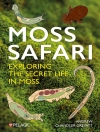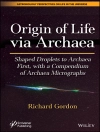This volume covers data describing the role of free radicals and antioxidants that deal with clinical and pre-clinical trials, as well as basic research in the area of women’s health. There is increasing evidence that oxidative stress is a causative, or at least a supporting factor in female pathology and infertility. During advancing gestational age, oxidative stress biomakers rise. Oxidative stress plays a regulatory role in transcription, signal transduction, gene expression and membrane trafficking. A search on Pub Med shows 449 papers have been published to date related to women’s health disorders and use of antioxidants in a variety of disease that are prevalent in women, such as hypertension and cardiovascular disease, osteoporosis, obesity and restless leg syndrome.
สารบัญ
Early Embryonic Embryopathies and Oxidative Stress.- Methods for the Detection of ROS in Female Reproductive System.- Oxidative Stress and the Endometrium.- Oxidative Stress, Oogenesis and Folliculogenesis.- Placental Vascular Morphogenesis and Oxidative Stress.- The Use of Antioxidants in Pre-eclampsia.- Recurrent Pregnancy Loss and Oxidative Stress.- Pre-term Rupture of Membranes and Oxidative Stress.- Endometriosis and Oxidative Stress.- Oxidative Stress Impact on the Fertility of Women with Polycystic Ovary Syndrome.- The Menopause and Oxidative Stress.- OS in ART (includes IVM, oocyte cryo-preservation and hydrosapinx).- Antioxidant Strategies to Overcome OS in IVF-embryo Transfer.- Oxidative Insult after Ischemia/Reperfusion in Older Adults.- Relationship of Oxidative Stress with Cardiovascular Disease.- Female Infertility and Free Radicals: Potential Role in Adhesions and Endometriosis.- Impact of Life Style Factors on Oxidative Stress.
เกี่ยวกับผู้แต่ง
Ashok Agarwal is the Director of the Andrology Laboratory and Reproductive Tissue Bank and the Director of Research at the Center for Reproductive Medicine. He holds these positions at The Cleveland Clinic, where he is a Professor at the Lerner College of Medicine of Case Western Reserve University. Dr. Agarwal received advanced training in Male Infertility and Reproductive Endocrinology at the Brigham and Women’s Hospital and served on the faculty of the Harvard Medical School. He has published over 500 scientific papers and reviews in peer reviewed scientific journals, authored over 50 book chapters, and presented more than 700 papers at scientific meetings. Dr. Agarwal is an editor of 10 medical text books/ manuals related to male infertility, ART, fertility preservation, DNA damage and antioxidants. He is the guest editor of 4 special issues of journal and an Editorial Board member of over 20 peer-reviewed journals. Dr. Agarwal is active in basic and clinical research and his laboratory has trained more than 150 basic scientists and clinical researchers from the United States and abroad. In addition, over 150 medical, undergraduate, and high school students have worked in his laboratory. Dr. Agarwal is the Program Director of the highly successful Summer Internship Course in Reproductive Medicine. In the last 5 years, about 100 pre-med and medical students from across the United States and overseas have graduated from this highly competitive program. His current research interests have focused on molecular markers of oxidative stress, DNA integrity, and apoptosis in the pathophysiology of male and female reproduction, effect of radio frequency radiation on fertility and fertility preservation in patients with cancer.
Botros Rizk is Professor of Obstetrics and Gynecology and head of Reproductive Endocrinology and Infertility and Medical and Scientific Director of In Vitro Fertilization and Assisted Reproduction at the University of South Alabama. Mentored by Nobel Laureate Professor Robert Edwards and Professor Howard Jacobs, Dr. Rizk completed his prestigious fellowship in Endocrinology at Bourn Hall Clinic and joined Cambridge University as clinical lecturer. Dr. Rizk is past chairman of the American Society for Reproductive Medicine international membership, Associate Editor of the Egyptian Fertility Society Journal and president elect of the Middle East Fertility Society. Dr. Rizk authored and edited twelve medical textbooks on human reproduction and published over four hundred peer reviewed articles, review articles, book chapters and abstracts over the past twenty five years. His research interest have focused on ovarian stimulation, endometriosis and ovarian hyperstimulation syndrome.
Dr. Nabil Aziz is a Consultant in Gynecology and Reproductive Medicine and Lead Clinician at Liverpool Women’s Hospital and the University of Liverpool, United Kingdom. The Hospital is the largest women’s hospital in Europe and houses the largest assisted conception unit in the UK. Dr. Aziz received his medical degree from Ain Shams University School of Medicine in Cairo, Egypt. He became a member of the Royal College of Obstetricians in 1988 and was elevated to a Fellow in 2007. He was awarded the Doctorate degree (MD) in reproductive medicine from the University of Liverpool, UK in 1999.Dr. Aziz’s primary research interest is in basic research of male infertility and the clinical aspect of assisted reproductive technology. His research work led to the routine use of the single-channelled needle in oocyte aspiration. He developed the concept of Sperm Deformity Index as a reliable predictor of male infertility. His methodology in assessing sperm morphology was adopted by the WHO Laboratory Manual for the Examination Human Semenin since1999. Among his other interests are minimal invasive surgery and medical education. Dr. Aziz has published more than 80scientific papers, abstracts, and book chapters. He has been the recipient of several clinical excellence awards for his endeavour in research and medical education.
Dr. Nabil Aziz is a Consultant in Gynecology and Reproductive Medicine and Lead Clinician at Liverpool Women’s Hospital and the University of Liverpool, United Kingdom. The Hospital is the largest women’s hospital in Europe and houses the largest assisted conception unit in the UK. Dr. Aziz received his medical degree from Ain Shams University School of Medicine in Cairo, Egypt. He became a member of the Royal College of Obstetricians in 1988 and was elevated to a Fellow in 2007. He was awarded the Doctorate degree (MD) in reproductive medicine from the University of Liverpool, UK in 1999.Dr. Aziz’s primary research interest is in basic research of male infertility and the clinical aspect of assisted reproductive technology. His research work led to the routine use of the single-channelled needle in oocyte aspiration. He developed the concept of Sperm Deformity Index as a reliable predictor of male infertility. His methodology in assessing sperm morphology was adopted by the WHO Laboratory Manual for the Examination Human Semenin since1999. Among his other interests are minimal invasive surgery and medical education. Dr. Aziz has published more than 80 scientific papers, abstracts, and book chapters. He has been the recipient of several clinical excellence awards for his endeavour in research and medical education.
Dr. Nabil Aziz is a Consultant in Gynecology and Reproductive Medicine and Lead Clinician at Liverpool Women’s Hospital and the University of Liverpool, United Kingdom. The Hospital is the largest women’s hospital in Europe and houses the largest assisted conception unit in the UK. Dr. Aziz received his medical degree from Ain Shams University School of Medicine in Cairo, Egypt. He became a member of the Royal College of Obstetricians in 1988 andwas elevated to a Fellow in 2007. He was awarded the Doctorate degree (MD) in reproductive medicine from the University of Liverpool, UK in 1999.Dr. Aziz’s primary research interest is in basic research of male infertility and the clinical aspect of assisted reproductive technology. His research work led to the routine use of the single-channelled needle in oocyte aspiration. He developed the concept of Sperm Deformity Index as a reliable predictor of male infertility. His methodology in assessing sperm morphology was adopted by the WHO Laboratory Manual for the Examination Human Semenin since1999. Among his other interests are minimal invasive surgery and medical education. Dr. Aziz has published more than 80 scientific papers, abstracts, and book chapters. He has been the recipient of several clinical excellence awards for his endeavour in research and medical education.












